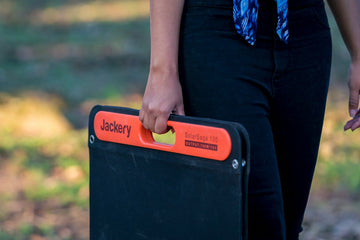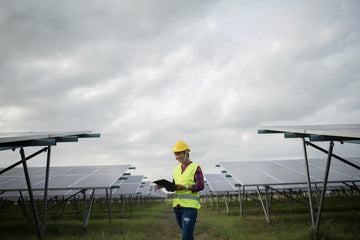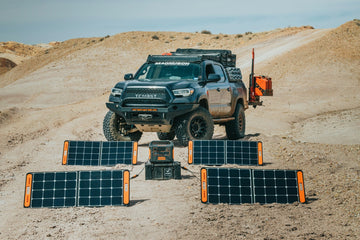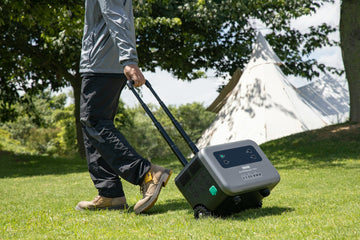Introduction
Solar energy can be harnessed through portable solar panels or fixed installations. Each has unique benefits depending on your lifestyle, energy needs, and location. This guide breaks down the pros and cons to help you make an informed decision.
1. Portable Solar Panels
Pros:
-
Mobility: Can be moved anywhere for camping, RVs, or temporary setups
-
Easy Setup: Plug-and-play design for beginners
-
Versatility: Powers devices, small appliances, and portable power stations
-
No Permanent Installation: Ideal for renters or temporary locations
Cons:
-
Lower Power Output: Typically less wattage than fixed installations
-
Space Required: May need multiple panels for higher energy demands
-
Weather Dependent: Efficiency drops on cloudy days
2. Fixed Solar Installations
Pros:
-
High Energy Output: Can power entire homes
-
Long-Term Investment: Reduces electricity bills over time
-
Automatic Operation: No manual setup required
-
Durable and Weather-Resistant: Built for long-term use
Cons:
-
Permanent Installation: Not ideal for renters or temporary setups
-
Higher Initial Cost: More expensive upfront than portable panels
-
Less Flexibility: Panels cannot be moved or repositioned easily
3. Choosing the Right Solution
-
For RVs, camping, or temporary off-grid use: Portable solar panels are ideal.
-
For home energy independence or long-term savings: Fixed solar installations are the better option.
-
Combination approach: Some users pair portable panels with fixed installations for emergency backup or flexibility.
4. Tips for Maximizing Efficiency
-
Clean panels regularly to avoid dust or debris buildup.
-
Position panels at the optimal angle toward the sun.
-
Pair with a solar generator or battery for energy storage.
Conclusion
Both portable solar panels and fixed installations have their unique advantages. Your choice depends on mobility, energy needs, budget, and lifestyle. Understanding the pros and cons ensures you select the right solar solution for your situation.





